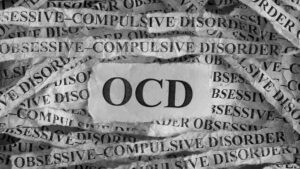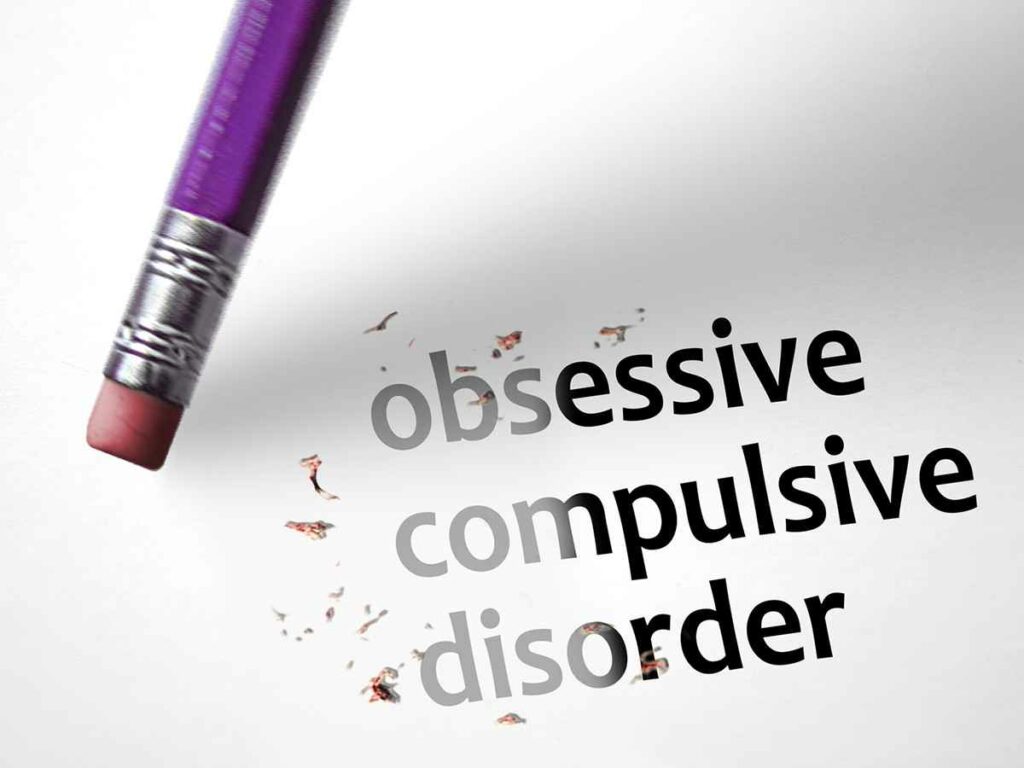If you have OCD, you know that certain things can trigger your obsessive thoughts and compulsive behaviors. It is essential to be aware of them and to avoid them as much as possible. In this blog post, we will discuss some common triggers for OCD. Knowing what to look out for can help you stay on track and maintain control over your disorder.
Contents
What Does OCD Trigger Mean?

OCD trigger means different things for different people. For some, an OCD trigger can be a specific thought, image, person, place, or object that brings on obsessive thoughts and compulsions. For others, anything that causes anxiety can be an OCD trigger.
There are also certain situations or life events that may increase the risk of developing OCD, such as trauma, abuse, or a major loss.
Some of the few triggers, we will be discussing are below. All above, you should always understand the importance of OCD triggers because they can prevent OCD to get worse and in fact, reduces the symptoms. So keep reading on for some examples!
What Are Some Examples Of OCD Triggers?
There are various types of OCD triggers, let’s discuss some of the common ones below:
Fear of certain things
- Dirt or contamination of germs or illness
- Making mistakes
- Aout harm coming to yourself or others
- Change, newness
- About certain numbers or colors
- Symmetry and orderliness
- Religious obsessions and taboos
Some triggers are environmental, such as certain sounds or smells. Other triggers are situational, such as being in a crowded place. And still, other triggers are psychological, such as stress or anxiety. It is important to identify your OCD triggers so that you can avoid them or manage them effectively.
Let us take a closer look at how these triggers look, feel, and sound like in real life:
Environmental Triggers
This can be a very stressful time and can make your OCD worse. Some examples:
- A new baby in the family
- Having a pet
- A change in routine
- Going on vacation
- Weather changes
- Seasonal changes
Interpersonal Triggers
This trigger is usually related to a fear of abandonment or rejection. It can be set off by something as simple as a change in routine, such as a loved one coming home later than usual from work. The trigger can also be more significant, such as a loved one moving away or getting divorced. For example, if your spouse is not following your usual routine, this can trigger your OCD. Some examples:
- Your spouse is out of town for work and you start to worry that they are cheating on you.
- Get into a fight with your friends and you start to worry that they will abandon you.
- Parents are getting divorced and you start to worry about how this will affect your relationship with them.
Intrusive Thoughts
These are unwanted and intrusive thoughts, images, or urges that can cause distress and anxiety. They are often violent or sexually explicit in nature. People with OCD may try to suppress these thoughts or push them out of their minds, but this only makes them more persistent. For example, you have a thought about harming your child or yourself.
This trigger is often related to the fear of making mistakes. People with OCD may have high standards for themselves and others. They may be critical of themselves and others and have difficulty completing tasks unless they are done perfectly.
Situational Triggers
These triggers are usually specific places, people, or objects that are associated with your obsessions or compulsions. Situational triggers can be very difficult to avoid because they are often things that you come into contact with on a daily basis.
There are many different situations that can trigger your OCD. Some examples:
- being in a crowded place
- being in a quiet place
- being in a new place
- having to make a decision
- feeling overwhelmed
- feeling under pressure
Emotional trigger
A trigger can be an emotional memory or reminder of past trauma. This might include, but is not limited to, memories of abuse (physical, sexual, emotional), reminders of a death or loss (including pet loss), or anything else that brings up intense emotions. For example, many people with OCD are triggered by the fear of abandonment. This might be due to past experiences, such as being rejected or abandoned by a parent or caregiver. Other emotional triggers might include:
- Fear of not being good enough
- Fear of making mistakes
- Fear of being judged
- Anxiety about the future
- Anger or resentment
Physical trigger
Certain physical sensations can also act as a trigger for OCD. For some people, it might be the feeling of being dirty or contaminated. Others might feel a need to “fix” things that are asymmetrical or not aligned correctly. Some people with OCD are triggered by certain sounds, such as someone tapping their fingers or humming.
Triggers can be different for everyone, and it’s important to figure out what yours are. Once you know what your triggers are, you can start to develop a plan for how to deal with them. If you’re not sure what your triggers are, talking to a therapist might be a good idea. They can help you figure out what’s triggering your OCD and offer guidance on how to deal with it.
What Are Some Ways To Deal With Triggers?
 There are many different ways that people with OCD can deal with their triggers. Some people may choose to avoid their triggers altogether, while others may choose to face their triggers head-on. To deal with triggers it will include:
There are many different ways that people with OCD can deal with their triggers. Some people may choose to avoid their triggers altogether, while others may choose to face their triggers head-on. To deal with triggers it will include:
- Identifying your triggers
- Avoiding your triggers
- Facing your triggers head-on
There are many different ways to deal with OCD triggers, and what works for one person may not work for another. It is important to find what works for you and to stick with it. Some common tips to deal with OCD triggers are as follows:
Practice self-care
It is important to practice self-care when dealing with OCD triggers. This means taking care of yourself emotionally and physically. Make sure to get enough sleep, eat healthily, and exercise regularly. Consider talking to a therapist or counselor if you are feeling overwhelmed.
Challenge your thoughts
One way to deal with OCD triggers is to challenge your thoughts. If you are having intrusive thoughts, try to question them. Why am I thinking this? Is there any evidence that supports this thought? Is this thought helpful or harmful? This way you can challenge and change your negative thoughts. Ultimately, you will more likely to get rid of your OCD triggers.
Expose yourself to your triggers
Another way to deal with OCD triggers is to expose yourself to them. This means gradually exposing yourself to things that trigger your OCD. For example, if you are afraid of germs, you may start by touching doorknobs and then progress to shaking hands with people.
Use coping mechanisms
Coping mechanisms are tools that can help you deal with your OCD triggers. Some examples of coping mechanisms include deep breathing, visualization, and positive self-talk.
Try distraction techniques
When you feel the urge to perform a compulsion, try to distract yourself by doing something else. For example, if you have the urge to wash your hands, try playing a game on your phone or reading a book instead. If you can’t seem to focus on anything else, then allow yourself to do the compulsion for a set amount of time, and then stop. This can help to lessen the intensity of the urge.
Join Support groups
If you are struggling to deal with your OCD triggers, it is important to talk to someone. There are many support groups available for people with OCD. These groups can provide you with support and information about dealing with OCD and can provide you with information and resources, as well as a way to connect with others who understand what you are going through.
Seek Professional Help
If you are struggling with OCD, it is important to seek professional help. A mental health professional can help you understand your OCD and develop a treatment plan. A therapist can be a great resource for managing your OCD. They can provide you with numerous therapies that are specific to help with OCD. So, choose one that can help to recover from your OCD symptoms.
So, as you can see, these are various things that can be used to help with OCD triggers. Do not hesitate to reach out to a professional for further help and guidance.
Conclusion
It may be concluded that there are many potential triggers for OCD. However, it is important to remember that anyone can develop OCD and that any trigger has the potential to cause the disorder. If you think you may be at risk for OCD, or if you are already experiencing symptoms, it is important to seek professional help. Early intervention is key to managing the disorder and preventing it from taking over your life.
For further information and suggestions, please contact Therapy Mantra. We have a team of expert therapists that can help you overcome this problem. Get in touch with us right away to learn more about our services. You may also make an online therapy session or download our free Android or iOS app.


